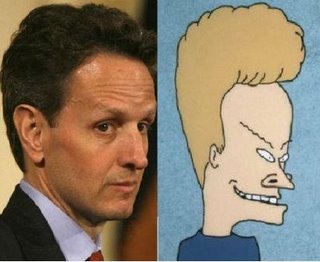I have never accepted the idea that economic austerity could be at all useful in resolving our unending economic crisis. I posted my rant about this subject on December 19, 2011:
The entire European economy is on its way to hell, thanks to an idiotic, widespread belief that economic austerity measures will serve as a panacea for the sovereign debt crisis. The increasing obviousness of the harm caused by austerity has motivated its proponents to crank-up the “John Maynard Keynes was wrong” propaganda machine. You don’t have to look very far to find examples of that stuff. On any given day, the Real Clear Politics (or Real Clear Markets) website is likely to be listing at least one link to such a piece. Those commentators are simply trying to take advantage of the fact that President Obama botched the 2009 economic stimulus effort. Many of us realized – a long time ago – that Obama’s stimulus measures would prove to be inadequate. In July of 2009, I wrote a piece entitled, “The Second Stimulus”, wherein I pointed out that another stimulus program would be necessary because the American Recovery and Reinvestment Act of 2009 was not going to accomplish its intended objective. Beyond that, it was already becoming apparent that the stimulus program would eventually be used to support the claim that Keynesian economics doesn’t work. Economist Stephanie Kelton anticipated that tactic in a piece she published at the New Economic Perspectives website . . .
It has finally become apparent to most rational thinkers that economic austerity is of no use to any national economy’s attempts to recover from a severe recession. There have been loads of great essays published on the subject this week and I would like to direct you to a few of them.
Henry Blodget of The Business Insider wrote a great piece which included this explanation:
This morning brings news that Europe may finally be beginning to soften on the “austerity” philosophy that has brought it nothing but misery over the past several years.
The “austerity” idea, you’ll remember, was that the huge debt and deficit problem had ushered in a “crisis of confidence” and that, once business-people saw that governments were serious about debt reduction, they’d get confident and start spending again.
That hasn’t worked.
Instead, spending cuts have led to cuts in GDP which has led to greater deficits and the need for more spending cuts. And so on.
On April 23, Nicholas Kulich wrote an article for The New York Times which began with the ugly truth that austerity has turned out to be a fiasco:
With political allies weakened or ousted, Chancellor Angela Merkel’s seat at the head of the European table has become much less comfortable, as a reckoning with Germany’s insistence on lock-step austerity appears to have begun.
“The formula is not working, and everyone is now talking about whether austerity is the only solution,” said Jordi Vaquer i Fanés, a political scientist and director of the Barcelona Center for International Affairs in Spain. “Does this mean that Merkel has lost completely? No. But it does mean that the very nature of the debate about the euro-zone crisis is changing.”
A German-inspired austerity regimen agreed to just last month as the long-term solution to Europe’s sovereign debt crisis has come under increasing strain from the growing pressures of slowing economies, gyrating financial markets and a series of electoral setbacks.
Joe Weisenthal of The Business Insider provided us with this handy round-up of essays proclaiming the demise of economic austerity. Here is his own nail in the coffin:
As we wrote this morning, the bad news for Angela Merkel is that the jig is up: There’s almost nobody left who is willing to go along with the German idea that the sole solution forEurope is spending discipline and “reform,” whatever that means.
One of the best essays on this subject was written by Hale Stewart for The Big Picture. The title of the piece was “People Are Finally Figuring Out: Austerity is Stupid”.
Those in denial about the demise of economic austerity have found it necessary to ignore the increasing refutations of the policy from conservative economists, which began appearing early this year. The most highly-publicized of these came from Harvard economic historian Niall Ferguson. Mike Shedlock (a/k/a Mish) criticized the policy on a number of occasions, such as his posting of January 11, 2012:
Austerity measures in Italy, Spain, Portugal, Greece and France combined with escalating trade wars ensures the recession will be long and nasty.
One would think that a consensus of reasonable people, speaking out against this ill-conceived policy, should be enough to convince The Powers That Be to pull the plug on it. In a perfect world . . .
